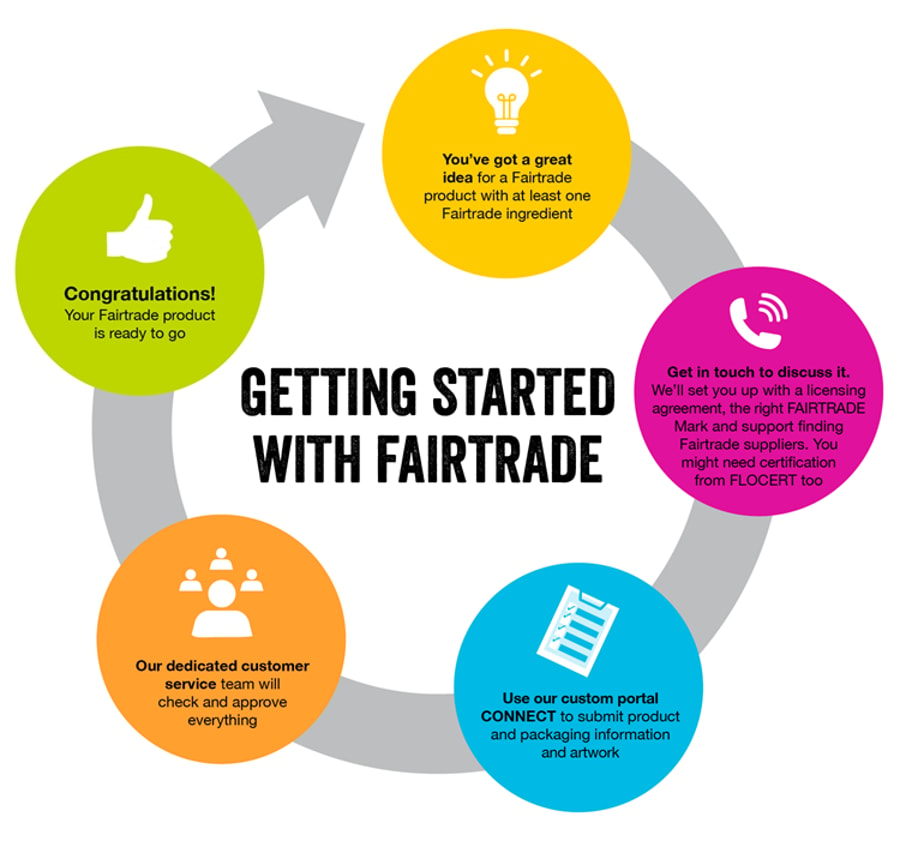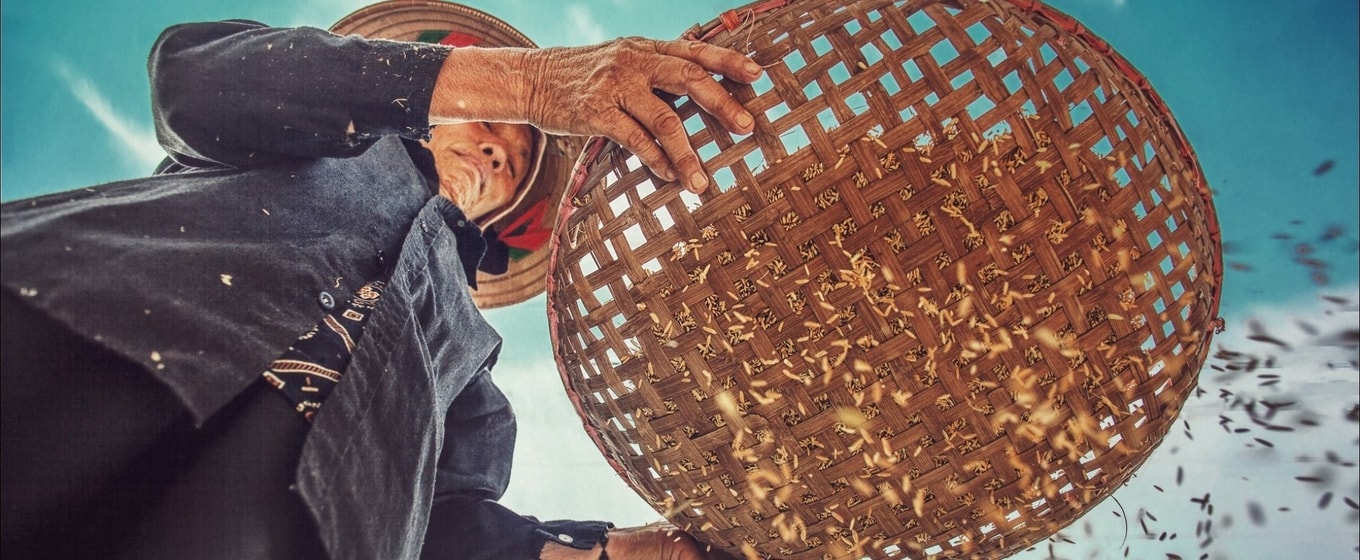Fair trade seeks to protect some of the most vulnerable workforces across the developing world, many of whom live in countries seriously affected by the Covid-19 pandemic. The global health crisis has further exacerbated problems relating to food, hygiene, wages, and employment, meaning that support for the movement is more crucial than ever.
We’ve put together a guide for UK SMEs to understand how fair trade impacts them and how they can get involved. We’ve also highlighted a few small businesses that are factoring fair trade into their overall offering, in the hope that this inspires others.
What is fair trade?
Fair trade is a way to make a difference to those who grow and produce goods by ensuring they are paid and treated fairly. In particular, fair trade aims to increase living standards and reduce risk and vulnerability of farmers and workers in supply chains. This is done by establishing better prices, decent working conditions, equitable trade standards, and an overall fairer deal for workers in developing countries.
As such, the Fairtrade Foundation sets social, economic, and environmental standards for both companies and workers to protect workers’ rights and the environment. Good working conditions, no child labour, no forced labour, and no discrimination are just some of the conditions that must be met. If a product meets these standards, it can be officially certified FAIRTRADE.
Why should UK SMEs consider getting involved?
As an SME ourselves, we understand that costs can be tight when getting your business up and running. Fair trade can, therefore, be something that business owners put off and aim to address later down the line. But it’s important to consider what fair trade can do not only for the wider world, but also for your business and your overall brand image.
For many years, there has been a shift in consumer attitude to fair trade and ethically-made products, with a growing generation of consumers increasingly conscious of how products are sourced and made. The disruption of the Covid-19 pandemic quickly exposed the social injustices which continue to plague modern supply chains, particularly within the fashion and retail industries, and reignited the public’s resolve to shop consciously. With the rise in ethical consumerism, supporting the fair trade movement could lead to a direct increase in sales for participating businesses.
The FAIRTRADE Mark is one of the most widely recognized labels in the world and is the most reputable ethical certification a product can get. Over 90% of British people recognize it, and it immediately gives businesses a credibility that resonates with consumers and speaks volumes about your overall approach and ethical practices.
By supporting fair trade, your business demonstrates that it’s actively empowering others around the world. It signals that you’re taking steps to ensure those in your supply chain are treated fairly. So, along with being good for the wider environment, getting involved with fair trade can also establish your SME as an ethical organization as part of your wider corporate social responsibility.

Image © Fairtrade Foundation.
UK SMEs championing fair trade
As outlined above, there are many ways to get on board with the fair trade movement. To understand this a little better, we’ve highlighted five UK businesses that have made fair trade a crucial part of their overall offering.
Cocoa Loco
Organic & Fair Trade Chocolates | West Sussex
Cocoa Loco produces chocolate that’s better for the planet and better for our bodies. It’s both 100% organic and fair trade, with cocoa beans grown in the Dominican Republic by a community of small-scale growers. The selection of artisan produce also extends to baked goods, truffles, hot chocolate and a range of vegan chocolate. Packaging is also compostable, which makes these handmade treats taste even sweeter.
As a result of Cocoa Loco’s efforts to help growers in the Dominican Republic, schools in the country have been built and repaired, with scholarships and equipment provided to students from poorer families. The cooperative that the business sources their beans from has benefited from a new IT centre to help children with schoolwork while also giving the community access to the internet. A clinic, free medical checks, and clean water projects are also improving the health of locals in the area.
You can learn more about how the Cocoa Loca team are supporting fair trade by reading their story online or following them on Instagram or Twitter.
Nomads
Fair Trade Fashion | North Cornwall
Nomads has been dedicated to creating beautiful clothing with ethical values since 1989. The business has been fair trade since day one, and embraces the slow fashion movement by ensuring that ethical practices and sustainability are at the core of its supply chain.
All garments are made with natural fibres and GOTS certified organic cotton, while their stunning prints are created with Azo-free, environmentally approved dyes. You can be sure you’re getting something truly unique when you shop with Nomads, as the nature of the team’s handloom process means no two garments they produce are ever the same.
Products are also sent to customers in biodegradable packaging made from FSC sustainable sources, and the business is totally transparent about every step of the production process, as outlined on the company website. Nomads is also a proud member of the London-based online platform Common Objective, which aims to make sustainable fashion the norm.
To learn more about the wider impact Nomads’ ethics have had, take a look at the companies on Instagram and Twitter.
Odylique
Natural Skincare & Makeup | Mildenhall, Suffolk
This family-run business has been producing hand-made natural skincare products from its Suffolk workshop since 1984. It was the first UK brand to launch skincare certified as both organic and fair trade.
Odylique’s offering is based around ingredients that have a therapeutic value, so most products have herbs and essential oils as active ingredients. You’ll find products ranging from makeup and skincare, to products made specifically for the needs of babies and new mums. You can even select treatments for specific skin concerns such as eczema, rosacea and psoriasis.
Odylique's line is also free from synthetic chemicals and certified to strict Soil Association organic standards. Products are never tested on animals and are all packaged responsibly, so you'll have a totally guilt-free conscience when pampering yourself.
If you want to know more, take a look at Odylique’s fair trade policy or keep up with the latest product releases on Instagram or Twitter.
Arena Flowers
Ethical Flowers | London
Ranked the UK’s most ethical florist, Arena Flowers has delivered more than 10 million hand-tied bouquets over the last 14 years. Their perfect score in the Ethical Company Index is more than a PR talking point; it reflects their commitment to delivering a high-quality product without exploitation of people or natural resources.
Arena Flowers’ ethical concerns are at the core of their business, so every stage of their operations ensures a fairer and stronger supply chain. Where possible, all products are Fairtrade certified, which means the flowers have been directly sourced from approved farms. Under their ‘Buy Flowers, Plan Trees’ initiative, customers have the additional assurance that for every bouquet purchased, two trees are planted in countries suffering from deforestation.
Furthermore, Arena Flowers is also the only florist in the world to have implemented a closed-loop waste system, with none of the materials used ending up in landfill.
If you’d like to know more about how Arena Flowers supports the environment and vulnerable communities, take a look at their recent sustainability report. You can also get company updates from their Instagram and Twitter.
Kingdom Coffee
Socially Conscious Tea & Coffee | London
Kingdom Coffee supplies one of the largest ranges of Fairtrade coffee in the UK. Advocating the mantra of ‘coffee with a conscience’, Kingdom Coffee has upheld fair trade principles since it was founded in 1998.
With FAIRTRADE certification, you can enjoy a hot beverage with the knowledge that every farmer involved in the process is guaranteed safe working conditions, a fair market price, and the benefits of local investment. Kingdom Coffee’s roastery technology not only produces a fully-developed, consistent flavour but is also designed to reduce its carbon footprint. In fact, Kingdom Coffee has the most efficient roaster in the UK.
The business is also dedicated to empowering the wider community, ensuring sustainable development and long-term trading relationships. For every case purchased, £5 is donated to one of their charitable partners; Latin Link, Toybox or Tearfund. These charities spearhead essential community projects to tackle poverty in Guatemala, Ethiopia, Columbia, and Costa Rica.
If you're interested in Kingdom Coffee's involvement with charity projects, you can learn more here. Alternatively, check out their Instagram or Twitter for company and product updates.
Get involved
These SMEs are just a few of the many UK businesses getting involved with fair trade. Fairtrade International’s annual report 2019 - 2020 can give you a good summary of where the UK sits and how to get involved.
If you’re looking for ways to integrate fair trade into your overall offering, then this in-depth fair trade purchasing guide created by the Fairtrade Foundation is an excellent resource to help you get started. It covers why and where you can buy, stock and source fair trade products for your UK business.
Bear in mind that although tea, coffee and chocolate are most commonly associated with the fair trade movement, flowers, cotton, juices, sugar, herbs, beauty products and even wine can also bear the FAIRTRADE Mark. By choosing fair trade products, whether you’re producing them, stocking them, or simply promoting fair trade refreshments in customer waiting areas, you’re ensuring workers around the world receive a fair price, and that they are empowered to improve their lives through their work.
If you have any other questions about fair trade for your SME, take a look at the Fairtrade Foundation’s useful guide covering the different aspects of fair trade for business. Or, if you have questions about the regulations regarding the FAIRTRADE Mark, take a look at the Fairtrade Foundation’s business FAQs.






These cookies are set by a range of social media services that we have added to the site to enable you to share our content with your friends and networks. They are capable of tracking your browser across other sites and building up a profile of your interests. This may impact the content and messages you see on other websites you visit.
If you do not allow these cookies you may not be able to use or see these sharing tools.